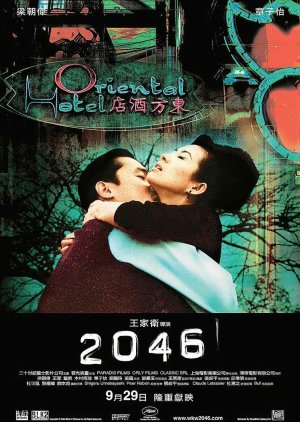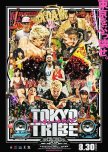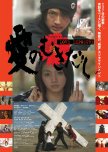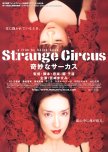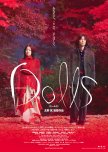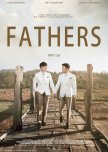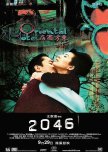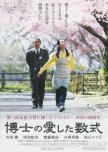
2046 can be considered a loose sequel to the director’s previous smashing piece “In the Mood for Love” but it can be watched for its own merits as well. Despite its abnormal twisty narrative pattern, the film is simply the tale of broken love, unstable emotions and unbearable suffering in the past, present and the future. The protagonist’s monologue was the main focus of driving the plot forward; it held hypnotic significance to the characters’ sensations.
This film leaves a lingering impact. The time frame metaphors Kar Wai used for this film were too impressive for words. He simply tried to tell the past through the future but instead of giving it out bluntly, he went through all the trouble of making this a memorable artistic piece instead. This is the story of a miserable man with love; he can’t seem to keep the women he meets by his side. Is it his broken emotional state or what? He then starts to pour his personal experience and thoughts into his fictional erotic novels. But that’s not it, the writing and editing styles don’t work in an obvious manner, there are always hidden hints and even some transparent humour. Even the apparent limited space holds extravagant and wide meanings behind it.
My blame would be the slow pace sometimes but it never last too long to bore me.
Such a poetic piece had few of the better Hong Kong actors as its main performers plus a Japanese renewed face Kimura Takuya. Tony Leung reprised his role only with a different characterization. Zhang Ziyi led one of her most memorable performances while Gong Li, Faye Wong and Carina Lau had mesmerizing screen presence aided by the top notch writing of their characters. The female department in this film was everything that Wong Kar Wai pictures in women including his passion and his resentment.
That being said, it doesn’t take a genius to state that the best performer was undeniably Wong Kar Wai, the director, the screenwriter, the artist, the poetic, the ingenious and one of the finest filmmakers the world ever knew. His touch was all over the picture; whether it was his overwhelming emotional take, his challenging narrative pattern, his stunning characterization and especially his philosophic and psychological view of love and lust. Let’s not forget his special camera angles, fast cuts and slow motions that he excels at.
Using a specific range of colours, the film was visually dazzling; the cinematography was a drop of brilliance in each scene. Accompanied by a tremendous musical choice and a remarkable production value, the film was wonderfully done. That’s nothing less from Kar Wai, who always manages to impress through his unconventional pictures.
Watch this if:
-You like Wong Kar Wai films.
-You like poetically artistic love stories.
Do not watch if:
-You’re looking for a traditional love story.
2046 is a challenging emotional take about love. It extends from the past through the present and until the future. Such a complicated tale takes a masterful brilliant director like Wong Kar Wai to pull it though successfully.
Was this review helpful to you?

It’s directed by Kar Wai Wong (Director of ‘In the Mood for Love’). 2046 looks like sequel of ‘In the Mood for Love’ which also features Tony Leung. Well, it’s sequel but 2046 is not totally dependent on ‘In the Mood for Love’.
2046 is a beautiful movie about romance and regret. It is an art film so it’s very poetic, slow paced and also sensual and unlike ‘IMFL’ it’s very complicated. Sometimes it’s really hard to understand the events happening. Time jumps are very puzzling; I read somewhere “2046 is a beautiful mess!” Also there are many similarities between ‘IMFL’ and 2046.
Visually it’s really good, mostly filmed in green and red tone with classy retro setup. Cinematography is beautiful but some special effects are really weird.
I’m Tony, Ziyi, Maggie and Li Gong fan, so I expected impressive performances. Most impressive is Zhang Ziyi. She’s not only beautiful but very talented too. I saw her great performances in ‘The Road Home’ and ‘Memoirs of a Geisha’; she gave her one of the best performance. Tony Leung is as great as always, he portrayed his ‘womanizer jerk trapped in sadness’ character very well. Same goes for Li Gong. Her screen time is less compared to Ziyi and Tony but she’s equally powerful. Faye Wong, Carina Lau and Kimura Takuya – I heard many good things about these three but this is first time I watched them. Faye Wong is very likable and Kimura Takuya and Carina are also good in their tiny role.
Like ‘IMFL’ music is really beautiful. It nostalgic and creates emotional environment.
I like this movie very much but it’s not a re-watch material, it’s quite heavy film to watch again so if I may watch it again after few years.
It’s a must watch for those who love poetic, slow art films and especially for those who enjoyed ‘In the Mood for Love’! 2046 is better than ‘IMFL’.
Was this review helpful to you?

This review may contain spoilers
"Love is a matter of time. It's no good meeting the right person too soon or too late"
2046 returned to the world Wong Kar Wai built in his 2000 film, In the Mood for Love. Tony Leung Chiu Wah reprised his role of Chow Mo Wan, this time as a broken man who numbed himself with casual sex and used the lives of the beautiful women in the hotel room next door, room 2046, as inspiration for his story of the same name.Chow, now alone after the events in the last film, earns his meager living writing racy stories. He had moved to Singapore and has little money for airfare home. The Black Spider (Gong Li) comes to his rescue and after spending time together he asks her to go to Hong Kong with him which she refuses. Back in Hong Kong he helps a very drunk woman home one night. In a moment of narrative synchronicity, he finds a room available next door, room 2047. He would have preferred 2046 but the woman he helped home was later stabbed by a jealous lover in that room and there was some redecorating to do. For those who didn't see In the Mood for Love, 2046 was the number of the room in another hotel where Chow and Su Lizhen (Maggie Cheung) worked on a martial arts story.
Aside from the revolving door to his bedroom, the lonely writer becomes involved with various women at different times and different ways in the hotel. The landlord's daughter, Jingwen (Faye Wong), is in love with a Japanese man, something her father cannot tolerate and will not approve of. Bai Ling (Zhang Zi Yi) moves in and she and Chow "borrow" each other to occupy their nights. Both have their share of paramours but become intimately if not romantically involved. Though she would like more, he keeps his emotional distance. As he writes his dystopian story of a train to 2046 where people search for their lost memories, the women's lives offer fodder for his creativity.
For me, this film would have been more difficult to understand if I hadn't watched In the Mood for Love prior to it. Understand might not be the right word, sympathize would work better. Chow didn't come across in a very favorable light as he slept his way through Hong Kong. Knowing what happened between him and Su Lizhen aided in feeling sympathy for his case of terminal heartache as guilt and grief guided his self-inflicted pain.
There were also many call backs to ITMFL. The green noodle thermos made an appearance several times. Many of the sets and lighting were similar, even more so when the rain set in. A taxi ride where he at least subliminally tried to recreate a moment with Lizhen with another woman gave a glimpse into his mind. And every Christmas he visited the diner as Nat King Cole's Christmas Song played in the background.
With three of the women, he found that he was using them as a substitutes, something that did not bring him comfort for very long. He was told the ending to the story he had written was too sad. How does one write a happy ending when your heart is hollowed out and beyond repair? When loss and longing are your constant companions? At best the women in his bed gave him a brief sense of warmth but he found himself lonely even in someone else's arms. Passion could not replace what he was searching for. His heart was waiting on the only one who could break his solitude and give him a happy ending and he had let her slip away.
This film was visually stunning. The color palette leaned heavily on green, yellow, and red in lighting, sets, costumes, and props. The costumer set the bar too high with Maggie Cheung's cheongsams in the previous film but there were some gorgeous dresses, particularly on Zhang Zi Yi. I was pleased that the soundtrack was more diversified for this film, fitting the despondent mood perfectly. Tony Leung, Zhang Zi Yi and the rest of the cast gave superb performances. The neon train moved beyond metaphor to personal therapy as Chow worked through his feelings writing about others. In style, this film succeeded brilliantly.
Where the film let me down were the characters. Though attractive and complicated the characters were challenging to care about. Remote and difficult to read, most of them kept their feelings to themselves. And those that did reach out were often reprimanded.
2046 was a deeply melancholic look at love and regret, bordering on cynicism. By the end of the film all of the color had been drained out of the spectrum, leaving only the cold, dark mood of despair. For Chow, love was pain and "all memories were traces of tears." This film could be just like Chow-beautiful to look at but also mystifying and emotionally detached and completely irresistible to walk away from.
5/3/23
Was this review helpful to you?

Having such a huge ensemble of well-known Asian actors from China, Hong Kong, Japan and even Taiwan (Tony, Zhang, Kimura) in itself makes 2046 a must-watch. It shows the powerhouse power of Asian cinema (even if it's mostly concentrated on East Asia but okay). 2046 is a daring film, much more daring than its more famous counterparts like Chung King Express and of course, In the Mood for Love.
Kar-wai, the auteur he is, combines 60s Hong Kong with sci-fi in such a non-linear narrative, much like his films, but it's really in 2046 that we see the intensity and effectiveness of that. The blend of the main story with the story of Chow's novel blend well, almost perfectly. Kar-wai here, transcends the realm of the present and the barriers of language.
His narratives are often called "weak" merely because they are simple and stretched out in a non-linear format and multiple arcs, but that's the Kar-wai way. It's unconventional. Combining 60s with sci-fi is an unlikely pair but he did. And does it so well that it's a big middle finger to mainstream film making/storytelling.
We have Cantonese, Japanese and Mandarin all played out and all three languages are dancing with the characters, another typical Kar-wai style. Cramped apartments that make inanimate object shots more beautiful, to cigarettes and smoking, to exotic music that makes you suffer from last song syndrome later (in different languages too!) to vibrant colors, everything is so beautiful to look at.
2046 is all about being stuck and choosing to move on. While there aren't as much setting shots as his other films, this one omits so with a purpose and to deliver the message he wants. Everyone on this film is stuck in the past, which makes them cling on to others. Like Kimura's, like Wong's and like Zhang's character, all of them are in search of moving on and especially Tony's. Kar-wai delivers his message in the most creative way possible.
Was this review helpful to you?

This review may contain spoilers
it just clicks with me
I think that this is Wong Kar-wai's cinematic masterpiece. It is a dreamlike exploration of love, loss, and the human condition. It's a film that lingers in the mind, a haunting melody that plays on repeat. I remember the first time I watched it, I was mesmerized by its beauty and complexity."The past is never over. It's just a story we tell ourselves."
The film is a tapestry of interconnected stories, each one a poignant reflection on the complexities of human relationships. Tony Leung's portrayal of Chow Mo-wan is nothing short of iconic. His nuanced performance captures the character's loneliness and yearning with a haunting intensity.
"Love is all a matter of timing. It's no good meeting the right person too soon or too late."
Zhang Ziyi's performance as Bai Ling is equally captivating. Her character is a mysterious and alluring figure, a woman who seems to embody the very essence of desire. Her chemistry with Tony Leung is palpable, and their scenes together are electric.
"Time is a thief, stealing the present from the future."
The film's nonlinear narrative structure adds to its dreamlike quality. It's like a puzzle, with pieces scattered across time and space. As the viewer, we're invited to piece together the fragments of the story, to connect the dots and discover the underlying meaning.
"Love is all a matter of timing. It's no good meeting the right person too soon or too late."
At its heart, 2046 is a film about the human condition. It explores themes of love, loss, memory, and the passage of time. The characters are constantly searching for love and connection, but they are often doomed to disappointment. The past haunts them, and they struggle to let go of their regrets.
"In love you can't bring on a substitute. When the Peony blooms, she stands tall. Does she mean no or yes?"
Wong Kar-wai's signature visual style is on full display in 2046. The vibrant colors, the stunning cinematography, and the evocative music create a truly immersive cinematic experience. The film's soundtrack, composed by Shigeru Umebayashi, is the perfect complement to the film's melancholic tone. It's a haunting melody that lingers in the mind long after the movie ends.
"Maybe one day you'll escape your past. If you dream hard enough."
2046 is a film that demands patience and attention. It's not a straightforward narrative, but a series of interconnected stories that unfold slowly and deliberately. But if you're willing to let yourself get lost in its dreamlike world, you'll be rewarded with a truly unforgettable cinematic experience.
"I once fell in love with someone. I couldn't stop wondering if she loved me or not. I went to 2046 hoping to find her there. But I never found her."
Was this review helpful to you?

This review may contain spoilers
About old flames from a bygone era.
If you say the Hong Kong genre, most probably think of old martial arts films with Bruce Lee, 80s and 90s action comedies with mainly Jackie Chan or newer and more brutal action films like Internal Affairs. Other films are also being made in Hong Kong. One of the most successful directors in recent years is Wong Kar-Wai. Among his previous works that have been shown in Swedish cinemas, In the mood for love and Happy Together can be mentioned.2046 is a love drama set in 1960s Hong Kong. Journalist and writer Chow looks back on his life as a bachelor and his past love affairs. In search of work and excitement, he travels between Hong Kong and Singapore. He enjoys life with different girls: Many of them come and go but the memory of some remains. He also writes a science fiction book entitled 2046, in which people ride a train to a future where everything and everyone is unchanged as it once was. The title of the book is the same as the number of his hotel room, but it is really strongly influenced by his longing for his own love memories and the girls he didn't get or that he wanted to be with anymore.
With some girls it sometimes becomes a hot passionate relationship, with others it stops at friendship: As with the hotel owner's two daughters. They have two completely different personalities: One wild, spontaneous and a little crazy, looking for new adventures. The other, played by Maggie Cheung, sensitive and fragile like a flower that must be taken care of. To help her with love, Chow agrees to smuggle her love letters to her, hidden from the father who disapproves of her relationship with the young Japanese.
2046 is a beautiful and well-made film that is easy to follow and yet goes deep without being boring. Tony Leung, who also appeared in Hero and Internal Affairs III, is absolutely superb in the male lead role. Like several of Wong's previous works, 2046 also takes place for the most part in 60s Hong Kong. What is typical for him also comes through clearly in this film: A quiet drama made with beautiful images accompanied by wonderfully beautiful music.
In 2046, Wong has assembled several of the best Chinese actors of the moment. The result can only be a very beautiful and successful film. The interaction with everyone involved is total. Everyone is so convincing in their portrayals and they really get into their roles. The majority of those involved have also collaborated with Wong in his previous films: Tony Leung, for example, played in both In the mood For Love and Happy Together and was awarded for both of these, as was Maggie Cheung who also received an award for In the mood For Love.
Another participant is the actress Zhang Ziyi, who is currently very hot and popular above all in her home country of China, and who, by the way, can also be seen in Flying Daggers.
Wong's style is special and unique and it shows in his films. The camera is constantly present and follows tenderly and carefully above all the movements of the protagonists. As a viewer, you are invited into the action and feel almost like part of the film. You are touched. To manage to get the viewer involved like he does is commendable!
Was this review helpful to you?

